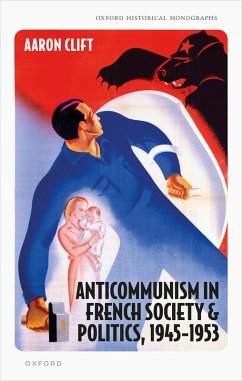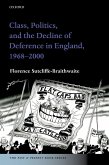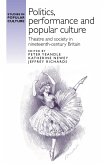Anticommunism in French Society and Politics, 1945-1953 evaluates the prevalence of anticommunism among the French population in 1945 to 1953, and examines its causes, character, and consequences through a series of case studies on different segments of French society. These include the scouting movement; family organisations; agricultural associations; middle-class groups; and trade unions and other working-class organisations. Aaron Clift contends that anticommunism was more widespread and deeply rooted than previously believed, and had a substantial impact on national politics and on these social groups and organisations. Furthermore, he argues that the study of anticommunism allows us a deeper understanding of the values they regarded as the most important to defend. Although anticommunism was a diverse phenomenon, this work identifies common discourses, including portrayals of communism as a threat to the nation; the colonial empire; the traditional family; private property; religion; the rural world; and Western civilisation. It also highlights common aims (such as the rehabilitation of wartime collaborators) and tactics (such as the invocation of apoliticism). While acknowledging the importance of the Cold War, it rejects the assumption that anticommunism was an American import or foreign to French society and demonstrates links between anticommunism and anti-Americanism. It concludes that anticommunism drew its strength from the connection or even conflation of communism with perceived negative social changes that were seen to threaten traditional French civilisation, interacting with the postwar international and domestic environment and the personal experiences of individual anticommunists.
Dieser Download kann aus rechtlichen Gründen nur mit Rechnungsadresse in A, B, BG, CY, CZ, D, DK, EW, E, FIN, F, GR, HR, H, IRL, I, LT, L, LR, M, NL, PL, P, R, S, SLO, SK ausgeliefert werden.









